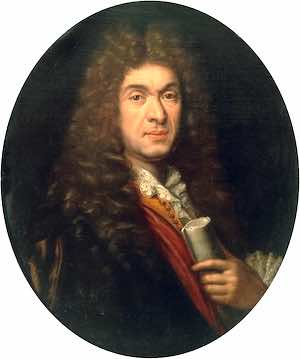Top > Other Musicians > Lully
This site introduces unknown composer Emanuel Bach (C. P. E. Bach). This English version was translated from Japanese one by ChatGPT.
Jean-Baptiste Lully
ChatGPT4o writes as follows (please note that it may not be accurate):Jean-Baptiste Lully (1632–1687) was a composer who epitomized French Baroque music and was originally a musician from Florence, Italy. He moved to France during his childhood and began his musical career at the court of Louis XIV, quickly rising to prominence as a royal musician. He is well-known for his compositions in ballet music, sacred music, and opera (specifically "tragédie en musique"), becoming a central figure in French court culture.
Lully established the French opera form and received high acclaim for works such as *Armide* and *Thésée*. He emphasized the fusion of music and drama in stage works, creating music rich in narrative expression. His compositions combined French elegance and lyricism, inspiring many followers.
Lully was granted exclusive rights by Louis XIV to stage musical performances, and as the director of the Royal Academy of Music (*Académie Royale de Musique*), he dominated the French music scene. He amassed great wealth through music publication and performance royalties, though his monopolistic position often led to conflicts with other composers.

In his later years, Lully fatally injured his foot with a staff while conducting his own *Te Deum*. The wound led to sepsis, which ultimately caused his death. Lully’s music has long been cherished as a symbol of French culture and has left a significant mark on the history of Baroque music.